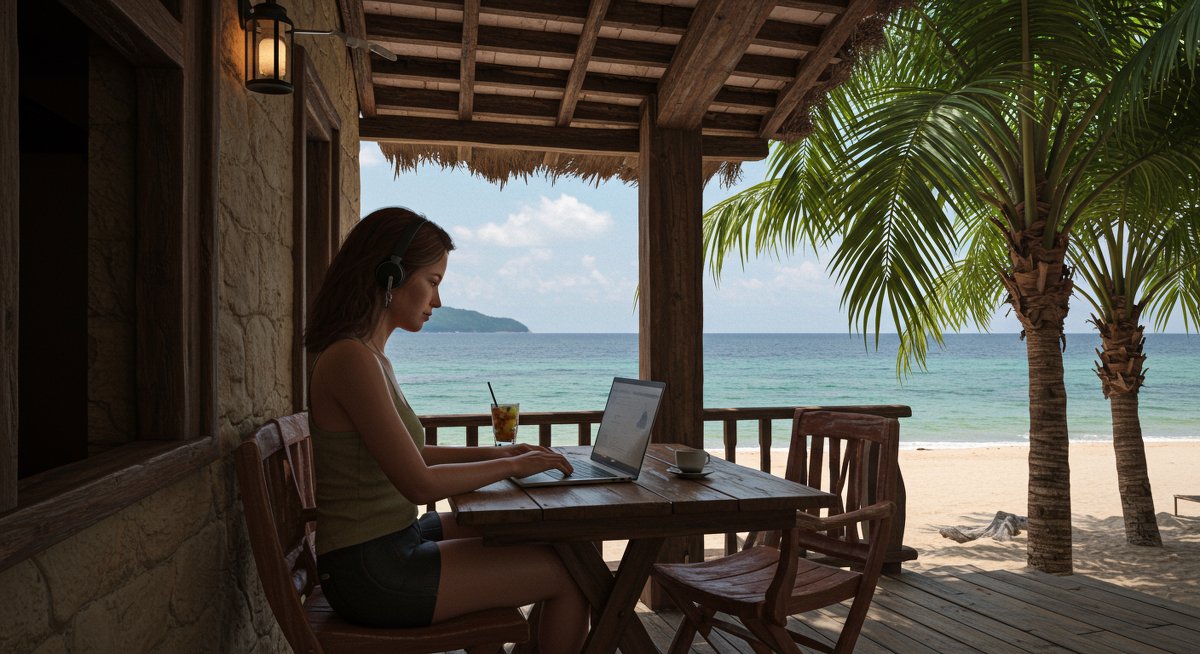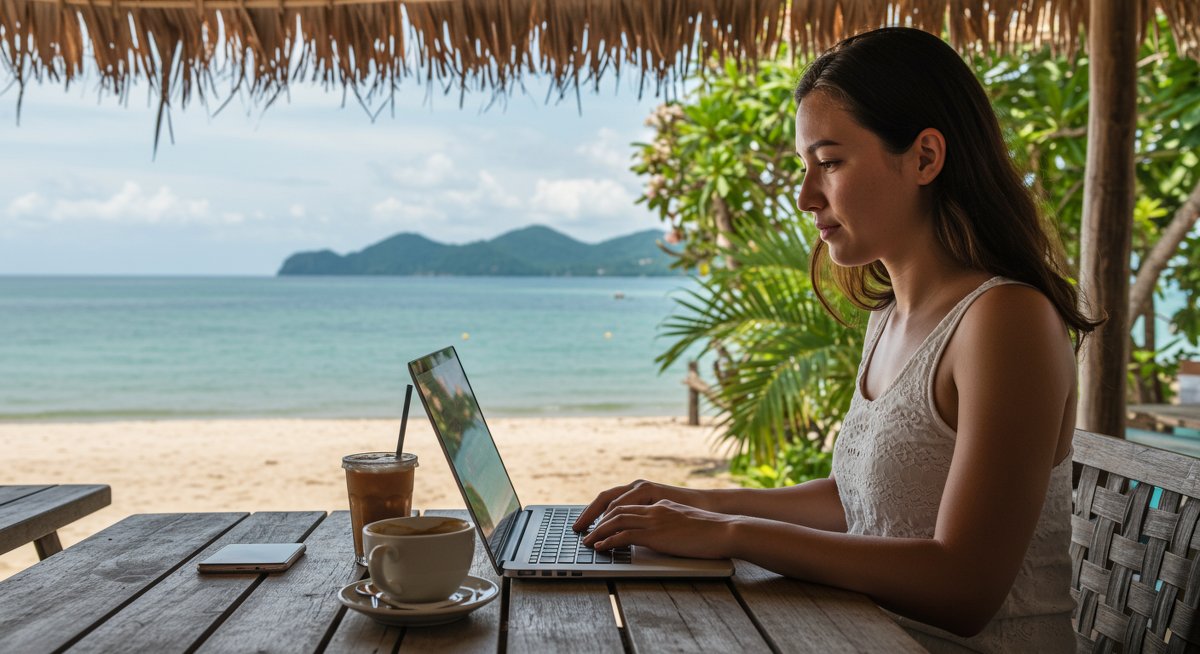Are you dreaming of a life where work doesn't tie you down? The digital nomad lifestyle offers unprecedented freedom, allowing you to explore the world while earning a living. But to make this dream a reality, you need the right tools. This comprehensive tech checklist is designed specifically for aspiring and beginner digital nomads. We’ll cover the essential gear and software you need to stay connected, productive, and secure, no matter where your travels take you. This guide will equip you with the foundational knowledge to thrive in your new, location-independent life.

Why Embracing Tech Essentials Matters for Your Nomad Journey
As a digital nomad, your tech setup is your lifeline. It's what allows you to work, communicate, and navigate the challenges of a life on the road. Investing in the right technology isn't just about having the latest gadgets; it's about building a reliable, efficient, and secure mobile office. This checklist will guide you through the essential hardware, software, and accessories that will empower you to work from anywhere in the world.
Consider this: A reliable internet connection is crucial, but it's useless without a dependable laptop and the right software. Or, think about the importance of cybersecurity when you're constantly connecting to public Wi-Fi. From choosing the right laptop to securing your data, every item on this list plays a vital role in your success.
Essential First Steps to Become a Digital Nomad
Before you hit the road, take these steps to ensure your tech setup is ready:
- Choose the Right Laptop: A lightweight, powerful laptop is the cornerstone of your mobile office. Look for models with long battery life, a fast processor, and ample storage. Consider factors like screen size, keyboard comfort, and port selection based on your work needs. A good starting point is a 13-14 inch laptop with at least 8GB of RAM and 256GB of SSD storage.
- Example: The Apple MacBook Air (M2) is a popular choice, offering excellent performance, battery life, and a sleek design. Alternatively, a Windows-based laptop like the Dell XPS 13 provides similar power and features, with some models available at a lower price point.
- Invest in a Reliable Internet Connection: While you can’t always control internet speeds, having a backup plan is essential. Research the availability of Wi-Fi in your destinations and consider a portable Wi-Fi hotspot or a SIM card with a data plan.
- Example: A portable Wi-Fi hotspot, such as the Netgear Nighthawk M1, can provide a reliable internet connection in areas with limited Wi-Fi. Many digital nomads also use a local SIM card to ensure internet access.
- Secure Your Data: Cybersecurity is paramount. Install a VPN (Virtual Private Network) to encrypt your internet traffic and protect your data on public networks. Use a password manager, enable two-factor authentication, and back up your data regularly. These simple steps can prevent major headaches.
- Example: Using a service like NordVPN encrypts your internet traffic, protecting your sensitive information from potential hackers. Cloud storage services like Google Drive or Dropbox automatically back up your files.
Common Beginner Challenges & How to Overcome Them
- Slow Internet: Slow or unreliable internet is a common challenge. Research internet speeds in your destinations. Pack a portable Wi-Fi hotspot or a local SIM card.
- Solution: Use a speed test app, such as Speedtest by Ookla, to check internet speed before committing to a location and make sure you have a reliable backup.
- Lack of Power Outlets: Ensure you have the correct adapters and a power bank. Carry a multi-port charger to charge multiple devices simultaneously.
- Solution: Purchase a universal travel adapter with USB ports. A power bank with a high capacity is also helpful to charge your laptop and phone.
- Data Security Concerns: Public Wi-Fi can be risky. Always use a VPN and ensure your devices are password-protected. Back up your data regularly.
- Solution: Use a VPN, like NordVPN to protect your data. Use a password manager, such as 1Password, to create and store strong, unique passwords.
Tips for Success (e.g., budgeting, finding remote jobs)
- Create a Budget: Understand your expenses. Research cost of living in your destinations and set a realistic budget. Budgeting apps can help.
- Example: Apps like Mint or YNAB (You Need a Budget) can help you track expenses and stay within your budget.
- Find Reliable Remote Jobs: Look for remote-friendly companies and platforms. Freelance platforms, like Upwork or Fiverr, can be a great starting point. Build a strong portfolio and network to increase your opportunities.
- Example: Explore job boards specifically for remote work, such as RemoteOK.
- Stay Connected: Maintain regular communication with friends, family, and clients. Use communication apps like Zoom, Slack, and WhatsApp.
- Example: Make use of time zone converters to schedule meetings effectively and maintain clear communication channels with colleagues.
Building a Sustainable Nomad Lifestyle
- Prioritize Health & Wellness: The nomad life can be demanding. Exercise regularly, eat a healthy diet, and prioritize sleep. Consider a travel-friendly fitness tracker or app.
- Example: Apps like Headspace or Calm can help you manage stress and maintain your mental well-being.
- Develop a Routine: Structure your day to maintain productivity. Plan work hours, breaks, and leisure time. This provides a sense of normalcy.
- Example: Use a project management tool like Trello or Asana to organize tasks and track progress.
- Build a Community: Connect with other nomads. Join online communities, attend meetups, and share experiences. This helps in finding support and local insights.
- Example: Participate in Facebook groups like Digital Nomad World to connect with other nomads and share travel tips.

Recommended Resources for New Nomads
- Nomad List: For finding the best digital nomad-friendly cities with detailed cost of living data, Nomad List is an indispensable resource.
- Travel Insurance: Protect yourself with comprehensive travel insurance. SafetyWing is popular amongst nomads.
- Remote Job Boards: Explore RemoteOK and We Work Remotely for remote job opportunities.
Quick Wins for Your First Nomad Trip
- Pack Light: Prioritize essential tech and versatile clothing.
- Research Destinations: Understand the local culture, internet speeds, and cost of living.
- Test Your Setup: Practice working from different locations to ensure your tech is reliable.
Next Steps in Your Location Independent Life
Embracing the digital nomad lifestyle is an exciting journey. Remember, it's a marathon, not a sprint. As you gain experience, you'll refine your tech setup and workflow, adapting to the changing demands of remote work. Stay informed, stay connected, and embrace the freedom of location independence.